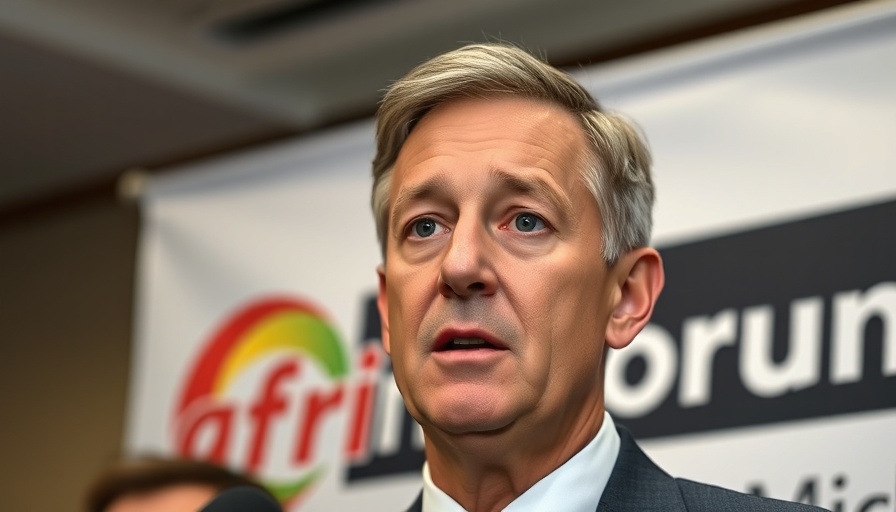
Context of Allegations: A Backdrop of Historical Friction
The recent allegations leveled against AfriForum and the Solidarity Movement center on accusations of treason related to their lobbying efforts with U.S. political figures, notably in the wake of Donald Trump's statements regarding South Africa's land reform policies. This situation is deeply intertwined with South Africa's complex socio-political landscape, where issues of land ownership and race continue to evoke strong sentiments. Historically, land reform in South Africa has aimed to address inequalities stemming from apartheid, making these accusations not merely a political maneuver but a reflection of the ongoing national tensions regarding race and property rights.
AfriForum's Dismissal of Treason Allegations
Kallie Kriel, CEO of AfriForum, firmly asserted that the allegations against his organization are unfounded, labeling them as "absurd." AfriForum contends that their complaints to President Cyril Ramaphosa regarding land expropriation were an attempt to engage in valid discourse rather than incite treasonous plots against the government. Kriel emphasizes that their frustrations with the government's approach to issues like the BELA Act—which impacts Afrikaans-speaking communities—are legitimate concerns stemming from a lack of response from the national leadership, rather than treachery. This highlights a crucial point: civil engagement and advocacy should not be conflated with treasonous activity.
Political Implications: Coalition Government Dynamics
The current allegations against AfriForum and the subsequent investigation by the Hawks reflect wider dynamics within South African politics, especially ahead of the critical 2024 general elections. Under the Government of National Unity (GNU), coalition dynamics are becoming increasingly complex as parties like the African National Congress (ANC) wrestle for power against emerging opposition like the Economic Freedom Fighters (EFF) and established parties like the Democratic Alliance (DA). The treason allegations serve to highlight existing divisions and could influence voter turnout, as various political actors frame these events within broader narratives of accountability and governance.
U.S. Influence: The Intersection of Foreign Policy and Domestic Issues
AfriForum's engagement with U.S. officials represents a strategic move to gain international support against policies perceived as detrimental to the interests of the Afrikaner population. The Trump administration's alignment with AfriForum, articulated through public statements, raises questions about the appropriateness of external involvement in South Africa's internal governance issues. The fallout of international perceptions, particularly regarding land expropriation without compensation, remains a contentious topic. As South Africa navigates its place in the global landscape, the implications of such dynamics could reverberate through diplomatic relations, particularly with nations that weigh in on human rights narratives.
Future Predictions: A Shift in Political Realignment
The unfolding situation with AfriForum illustrates possible trends in South Africa's political landscape moving toward the 2026 municipal elections. As opposition parties consolidate power and navigate the complexities of governance, public sentiment surrounding issues like land reform, racial reconciliation, and economic inequality will likely reshape political alignments. The outcome of the investigation into AfriForum may set precedents for how civil society organizations operate within the political sphere, potentially redefining the relationship between government and its constituents when it comes to advocacy and activism.
Taking Action: A Call for Civic Engagement
Given the complex political landscape and the ramifications of allegations against organizations like AfriForum, it is more crucial than ever for professionals across social, political, and economic sectors to engage with these issues. Civil society must hold government accountable not only for transparency but also for the pressures it exerts on minority groups under discussion. As discussions on reform, equity, and socio-economic development continue, individuals are encouraged to participate actively in dialogues surrounding these critical topics, ensuring a voice for all South Africans.
The challenges ahead warrant a collaborative effort in critically assessing narratives and advocating for constructive engagement. By remaining informed and active, citizens can contribute to a more equitable political climate.
 Add Row
Add Row  Add
Add 




Write A Comment